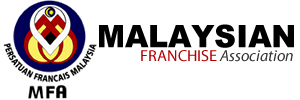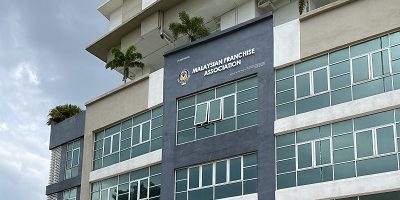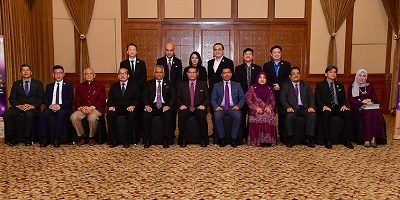2 nd July 2020,
AS PART of efforts to revitalise businesses in the retail and food and beverage (F&B) sub-sectors in the wake of the Covid-19 pandemic, the Malaysia Productivity Corporation (MPC) is collaborating with the Retail and Food and Beverage Productivity Nexus (RFBPN) to provide business advisories and consultations through Retail and F&B Retail Advisory Clinics (RFB-VAC) that are being conducted online.
MPC director-general Datuk Abdul Latif Abu Seman said Malaysian businesses had been caught off guard by the impacts of the Covid-19 pandemic, and the government was committed to assisting affected industries through the various stimulus packages that had been rolled out, including the recently announced National Economic Revival Recovery Plan (PENJANA).
“In line with the government’s commitment to rebuild and revitalise the Malaysian economy, since May 13, 2020, MPC and the RFBPN have been collaboratively providing the RFB-VACs to businesses from the retail and F&B sub-sectors to help them overcome the economic challenges of the Covid-19 pandemic,” he said.
Between May and June 2020, a total of 96 RFB-VACs have been held, featuring 27 industry experts providing advisories on branding and marketing strategies, supply chain management and business digitalisation. Businesses are able to register for these RFB-VAC sessions till the end of the year and MPC has targeted a total of 300 companies to participate in the RFB-VACs.
“Through the RFB-VAC sessions, we are promoting and creating greater awareness on the need to harness the benefits of technology and digitalisation to provide the impetus for business growth. Based on a survey we conducted within the nine Productivity Nexus, we found a high rate of adoption of digital technologies, with around 40 per cent of companies surveyed indicating that they would encourage their employees to work from home utilising digital technologies and online platforms,” said Abdul Latif.
He added that as the norm had changed since the advent of the pandemic, it was now necessary for businesses to look at new ways of meeting up with their customers and other stakeholders through the utilisation of technology.
The RFBPN was established as one of the nine Productivity Nexuses to drive the implementation of productivity initiatives proposed by the Malaysia Productivity Blueprint (MPB). The RFBPN aims to improve awareness and adoption of sector-level initiatives, empower enterprises by developing and disseminating tools that will boost productivity and foster knowledge sharing via productivity experts who help enterprises identify their productivity challenges, and share best practices and solutions.
As of June 15, a total of 96 companies have participated in the RFB-VACs. The clinics have recorded high customer satisfaction scores, with a customer satisfaction index of 94 per cent and an average indicator rating of 9.4 in terms of participants’ satisfaction with advisors.
Champion of the RFBPN and Vice President of the Malaysia Franchise Association Deric Yeo said participants had raised many of the challenges they faced during the RFB-VAC sessions. Among them were smaller businesses, especially restaurants from the F&B sub-sector, that had never used online platforms to market and sell their products which faced difficulties in terms of last mile delivery from logistic transport providers such as Grab, as well as bridging their businesses to the online space.
“The advisors in the RFB-VACs were able to provide these business-focused advice and consultancies, to help them with the knowledge they needed. In the area of branding and marketing, business owners were taught foundational knowledge on marketing and branding, and experts shared the digital marketing tools, as well as digital marketing and sharing economy platforms that they could use,” said Yeo.
He said business owners were also exposed to digitalisation through knowledge sharing sessions that centred on leveraging on social media to drive their marketing efforts, and using digital e-wallet platforms to obtain payment from customers.
“In terms of supply chain management, experts shared with them on how to better manage their inventories in order to optimise cost management by reducing wastage,” said Yeo, adding that restaurant owners were also encouraged to share their inventories with other establishments in order to gain from the economies of scale associated with bulk buying.
According to Yeo, participants appreciated the advice of industry experts and consultants that were provided at no cost during these sessions.
“For many of these businesses, they are not in a position to engage a consultant themselves due to cash flow issues, and the expert advice provided was both realistic and timely,” he explained.
He said the next step in the RFB-VACs is mentoring sessions which would be conducted with business owners by relevant subject experts. By July 2020, the intention is to incorporate other areas into the RFB-VAC sessions such as human resource management, operating businesses in adherence to Standard Operating Procedures (SOP), government incentives and human resource grants and funds that businesses can avail of, and Enterprise Resource Planning (ERP).
The RFB-VAC is part of a series of online Business Advisory Services that MPC is providing businesses to assist them in overcoming the impacts of the pandemic within all the Productivity Nexus. Complementing them are webinar sessions that aim to obtain feedback from businesses on the issues they are currently facing. According to Abdul Latif, businesses are assisted through expert advisories and one-on-one consultancy sessions with relevant industry experts by utilising digital platforms. As well as that, businesses are also linked with the relevant government agencies to obtain the right funding and advice.
“MPC had launched the MPC Moving Towards Digital initiative prior to the MCO, so we were well positioned to move our business support platforms online,” he said.
MPC is providing assistance to companies in several key areas. Mentoring sessions are offered after the VACs are conducted which home in on specific areas that are crucial for the business owner to address. Productivity initiatives outlined under the MPB have been adapted to adhere to Recovery MCO SOPs throughout the nine Productivity Nexus focusing on enhancing workforce skills and promoting the application of technology. As well as that, businesses are empowered to recommend better regulations and policies that facilitate doing business, rather than obstruct or hamper them.
“Most recently, MPC assisted The Legal Affairs Division of the Prime Minister’s Department which spearheaded the Covid-19 Bill to engage with stakeholders within the nine Productivity Nexus through our online Unified Consultation Portal (UPC),” said Abdul Latif.
MPC is also continuing to assist companies with specific issues through the range of programmes it offers, such as LEAN and the Business Excellence Framework. According to Abdul Latif, MPC is focused on supporting businesses achieve higher productivity by leveraging on digitalisation by increasing awareness on the role of technology and digitalisation in driving productivity improvements.
“We plan to continue organising VACs and webinars as we believe that this is the best way forward. Our online initiatives have seen greater participation than traditional on the ground events. It has also enabled a greater diversity of participants as there are no restrictions in terms of geographical locations. This has brought on the sharing of new and fresh ideas, and contributed to vibrant and constructive discussions,” he said, adding that in some of the webinars conducted by MPC, participants had hailed from other countries such as Germany and South Africa.
Source: News Straits Times
Full Article: https://www.nst.com.my/business/2020/07/605313/assisting-retail-fb-sub-sectors-revitalising-businesses















